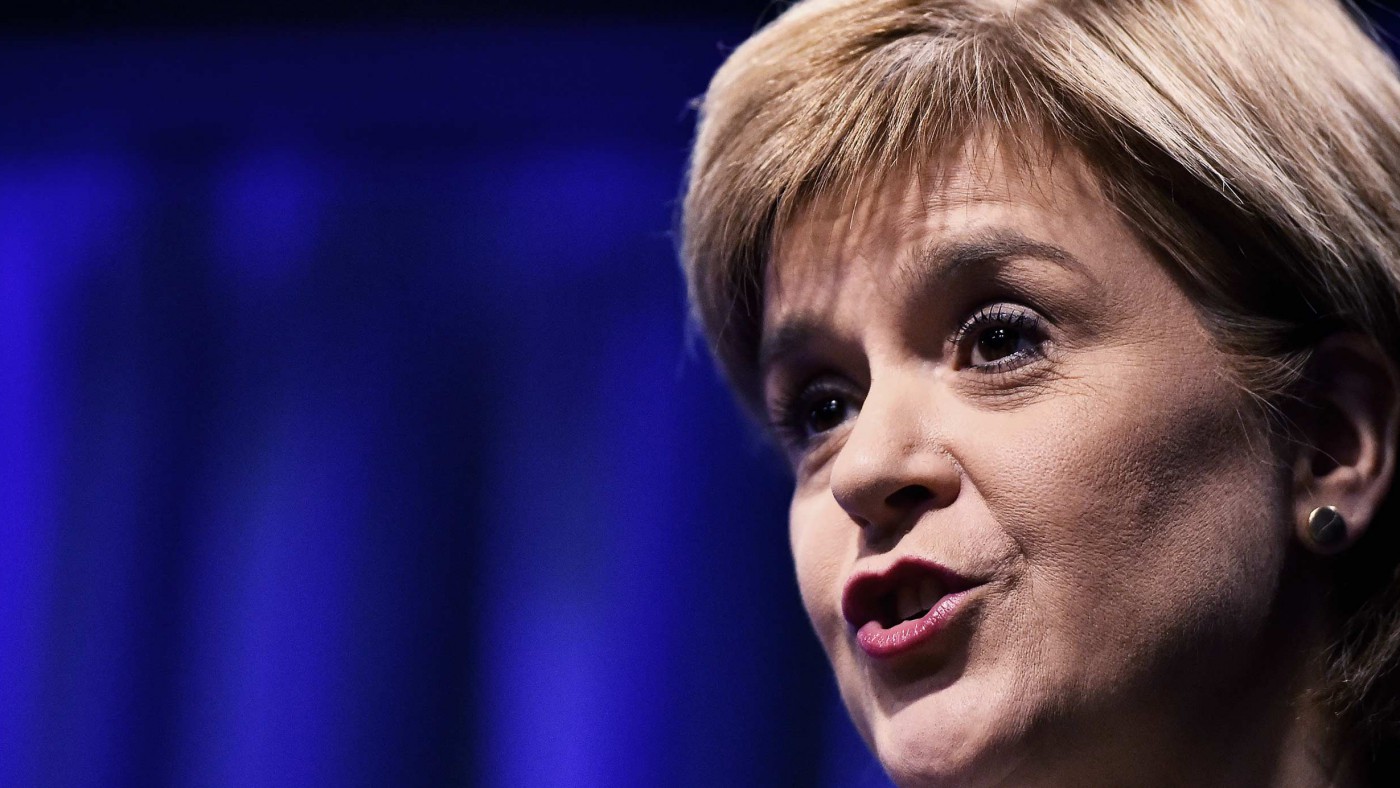Few in Britain emerge well from the events of the last week or so. Be it the Prime Minister David Cameron trying to second-guess tabloid newspapers, Labour leadership candidates engaging in a refugee bidding war, or the SNP using the crisis as yet another excuse to do what they do best – bash the Conservatives.
Nationalists, however, were uncharacteristically slow off the mark: only after horribly memorable images of a drowned Syrian boy appeared on several front pages did Nicola Sturgeon use First Minister’s Questions to highlight David Cameron’s supposed “walk on by” attitude to the crisis.
But until last week the SNP leader’s response had itself been underwhelming. Just over a month ago she was “particularly concerned about the impact on the Scottish seafood sector” of events at Calais, where thousands of migrants are tryign to get into the UK, and while there was an oblique reference to the humanitarian dimension, there was none of the righteous indignation witnessed in the Scottish Parliament last Thursday afternoon.
It didn’t take long, though, for the refugee crisis to be framed in Nationalist terms, for everything you understand, yes everything, boils down to the Union in one form or another. At a symbolically useful but ultimately meaningless “emergency summit” meeting on Friday the First Minister said Scotland stood “ready, in the best traditions of this nation, to offer sanctuary to those that need it”.
It was classic differentiation politics. “This nation”, of course, referred not to the UK but to Scotland, the clear implication being that if only “England” were as kind to foreigners as morally superior Scotland then everything would be okay. Now, I’m not suggesting Ms Sturgeon set out to make such a nakedly political point, but her language made a nonsense of repeated attempts to present the independence movement as having nothing to do with Nationalism.
Furthermore, “in the best traditions of this nation” implied a noble track record of Scots sheltering refugees while little Englanders stood idly by. I appealed via Facebook for examples of Scotland’s supposed unique generosity and got, bafflingly, “Ireland” in response, nicely demonstrating the gap between some Scots’ perceptions of themselves and the reality. Any cursory glance at the history of Scottish-Irish relations reveals the hostility that greeted many from across the Irish Sea, particularly in the early 20th century.
Others suggested Ukrainians and Poles following the Second World War, but those were not specifically Scottish enterprises. In fact, if any “nation” has a “tradition” it is the United Kingdom, be it in the 1930s (when many families sheltered German Jews, including the Thatchers in Grantham) or the 1970s when that Tory Edward Heath granted asylum to the Ugandan Asians. Of course the UK’s record is inconsistent, but attempting to delineate it along Scottish/English lines is risible.
On Wednesday the SNP intends to devote its opposition day debate at Westminster to the refugee crisis, doubtless another opportunity to assume the moral high ground. Once again Alex Salmond and Westminster group leader Angus Roberson (both of whom, to be fair, have been raising the refugee crisis for several months) will urge the Prime Minister “to do more”, although without ever troubling to suggest anything practical beyond platitudes.
Again, the SNP’s primary instinct is to bash the UK Government and, by extension, the Union. In an article for the pro-SNP Sunday Herald newspaper, SNP MEP Alyn Smith went even further. “The instigation for this ongoing tragedy was the chaos that followed the toppling of the unlamented Saddam Hussein,” he wrote, “creating the vacuum into which ISIS expanded and later infected Syria with.”
Thus the “very same people that the government policy of the UK (and others) tipped into the abyss are fleeing to us for help.” If most of the refugees came from Iraq, Mr Smith might have a point, but to draw a causal link between the 2003 invasion and contemporary events in Syria is highly simplistic. Nowhere in his article did he acknowledge the role of the Arab Spring, a startling omission in the circumstances.
When it comes to numbers, meanwhile, Ms Sturgeon has also been underwhelming, her suggested figure of “at least” 1,000 betraying the same caution that led to her to argue for “strong controls on immigration” during one of the general election leaders’ debates. She is acutely aware that Scottish public opinion when it comes to refugees (or immigrations) isn’t nearly as liberal as her own.
Asked on Sunday if she would personally house Syrian refugees the First Minister gave the only answer she could: “I would.” As ever, Ms Sturgeon has handled recent events with apparent sincerity, but it’s a classic case of power without responsibility. The refugee crisis is an issue (like Trident and austerity) from which Nationalists can extract huge political capital without ever having to worry about the detail.


